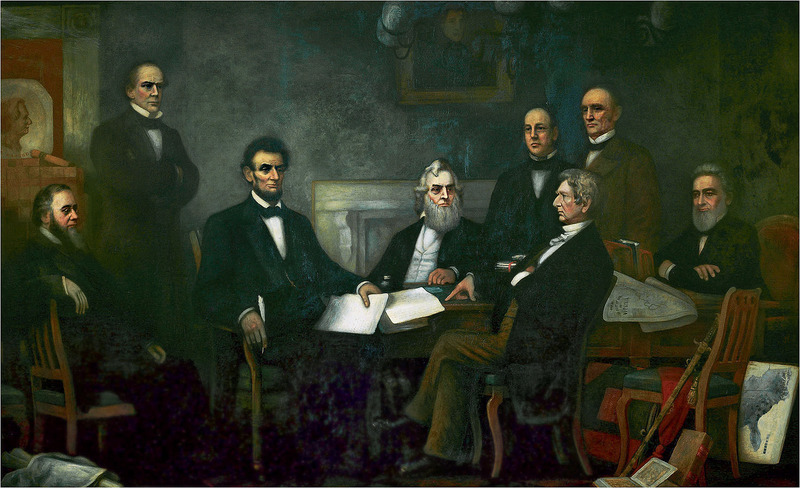The First Reading of the Emancipation Proclamation of President Lincoln
 In 1864 painter Francis Bicknell Carpenter was given permission to work in the White House on a large group portrait commemorating Abraham Lincoln's reading of the first draft of the Emancipation Proclamation to his cabinet. After spending weeks sketching, photographing, and making oil studies of the president and members of the cabinet, Carpenter began painting on a 9 by 14 1/2-foot canvas set up in the State Dining Room. Shunning allegory and with minimal symbolic references, Carpenter's finished painting was a popular and critical success and was seen by thousands of Americans when it toured the country. Carpenter later published a memoir about his painting experience, Six Months at the White House, with Abraham Lincoln: The Story of a Picture. The painting's greatest impact was in the form of a large engraving by Alexander H. Ritchie, which was completed in 1866. The engraving remained in demand until late in the nineteenth century, sometimes in new versions that included the text of the Proclamation and as photographs.
In 1864 painter Francis Bicknell Carpenter was given permission to work in the White House on a large group portrait commemorating Abraham Lincoln's reading of the first draft of the Emancipation Proclamation to his cabinet. After spending weeks sketching, photographing, and making oil studies of the president and members of the cabinet, Carpenter began painting on a 9 by 14 1/2-foot canvas set up in the State Dining Room. Shunning allegory and with minimal symbolic references, Carpenter's finished painting was a popular and critical success and was seen by thousands of Americans when it toured the country. Carpenter later published a memoir about his painting experience, Six Months at the White House, with Abraham Lincoln: The Story of a Picture. The painting's greatest impact was in the form of a large engraving by Alexander H. Ritchie, which was completed in 1866. The engraving remained in demand until late in the nineteenth century, sometimes in new versions that included the text of the Proclamation and as photographs.Physical Dimensions: 108 x 180 in.
URL: http://www.senate.gov/artandhistory/art/artifact/Painting_33_00005.htm
Creator: Francis Bicknell Carpenter
Source: U.S. Capitol Collection
Date: 1864



